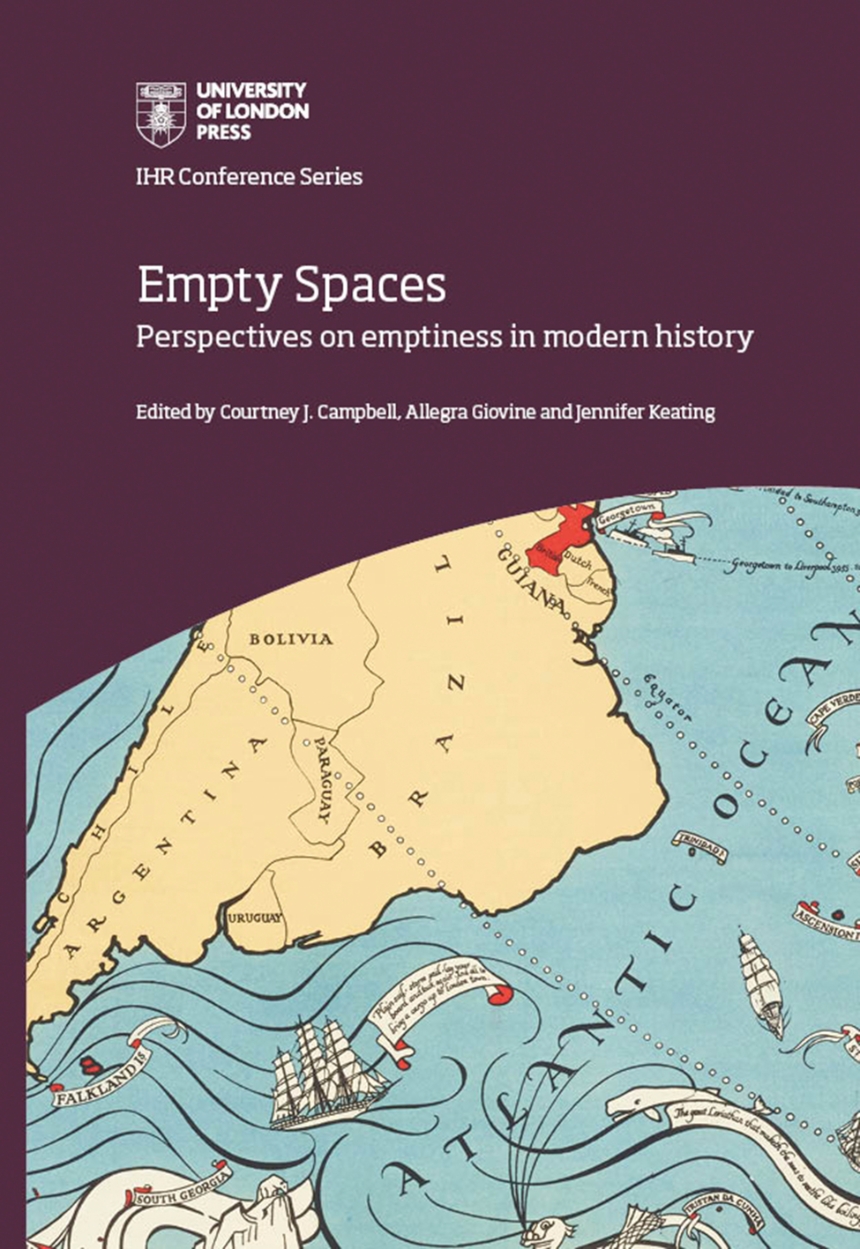Empty Spaces: perspectives on emptiness in modern history
9781909646490
9781909646506
Distributed for University of London Press
Empty Spaces: perspectives on emptiness in modern history
How is emptiness made and what historical purpose does it serve? What cultural, material and natural work goes into maintaining ‘nothingness’? Why have a variety of historical actors, from colonial powers to artists and urban dwellers, sought to construct, control and maintain (physically and discursively) empty space, and by which processes is emptiness discovered, visualised and reimagined? This volume draws together contributions from authors working on landscapes and rurality, along with national and imperial narratives, from Brazil to Russia and Ireland. It considers the visual, including the art of Edward Hopper and the work of the British Empire Marketing Board, while concluding with a section that examines constructions of emptiness in relation to capitalism, development and the (re)appropriation of urban space. In doing so, it foregrounds the importance of emptiness as a productive prism through which to interrogate a variety of imperial, national, cultural and urban history.
Table of Contents
Introduction: Confronting emptiness in history Courtney J. Campbell, Allegra Giovine and Jennifer Keating 1. ‘Take my advice, go to Mongan’s Hotel’: barrenness and abundance in the late Victorian Connemara landscape Kevin J. James 2. Amid the horrors of nature: ‘dead’ environments at the margins of the Russian empire Jennifer Keating 3. Empty spaces, aviation and the Brazilian nation: the metaphor of conquest in narratives of Edu Chaves’s cross-country flights in 1912 Leonie Schuster 4. Looking over the ship railings: the colonial voyage and the empty ocean in Empire Marketing Board posters Tricia Cusack 5. Spectral figures: Edward Hopper’s empty Paris Emily C. Burns 6. Landscapes of loss: the semantics of empty spaces in contemporary post-apocalyptic fiction Martin Walter 7. Surveying the creative use of vacant space in London, c.1945–95 Krystallia Kamvasinou and Sarah Ann Milne 8. Urban prehistoric enclosures: empty spaces/busy places Kenneth Brophy

